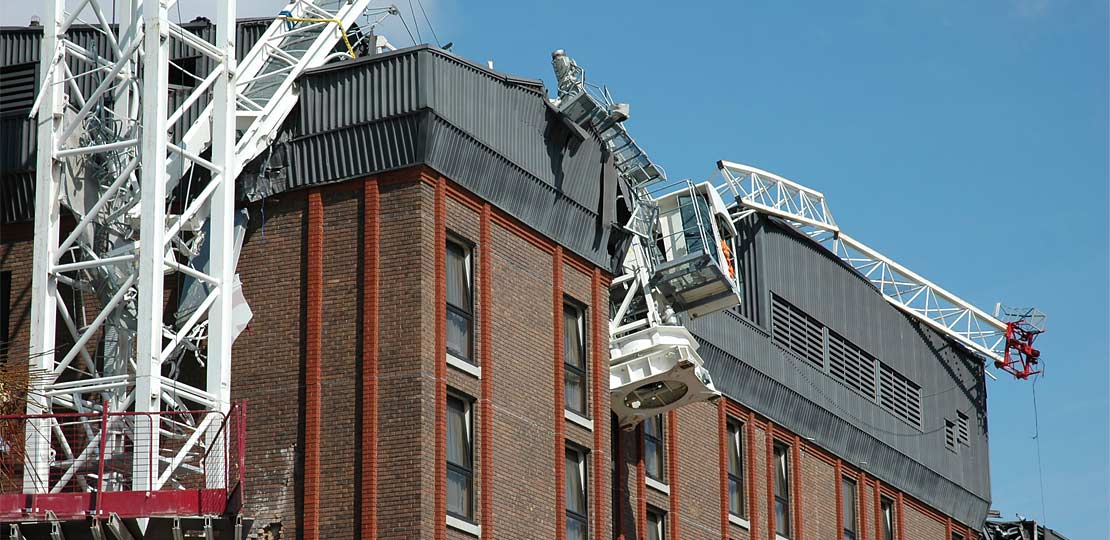Construction Litigation

Construction site accidents are often serious and frequently complex due to the number of parties involved. They also regularly involve highly nuanced insurance and contractual issues that require examination.
We routinely represent owners, general contractors, sub-contractors and construction managers in construction accident cases. We are versed in the complex interplay involving workers’ compensation claims, borrowed servant, and statutory employer issues. We understand the need for a thorough review of contracts and insurance policies to address additional insured and risk sharing issues.
The lawyers at FHMS also appreciate the need for prompt and aggressive fact investigation. We maintain a rapid response line (1-877-999-7678), which is monitored by our lawyers 24 hours a day, 365 days a year. Our ability to get to the scene quickly allows us to preserve evidence, avoid spoliation issues, and evaluate the exposure and damage potential quickly. We can anticipate the issues that will be raised by OSHA and begin to develop our defense theme just hours or days after an incident.
Regardless of the area our expertise is required in, our business philosophy remains the same. We started Fowler Hirtzel McNulty & Spaulding because we felt the traditional legal model was broken. We wanted to approach our matters in a different way, and to relate to our clients’ business from their perspective. We believe terms like business partnership and teamwork should not be clichés. At FHMS, we focus on moving each matter to resolution at the earliest practical opportunity, whether by risk transfer, trial, dispositive motion, alternative dispute resolution, or direct negotiation with the opposition. Our approach is dependent on the facts of each case and the goals of our client. We are committed to sharing data with our business partners. We collect data on file cycle time, fees, costs, and indemnity. We sort the data by type of case and injury severity. We want to know what worked, and what didn’t. Our goal is simple: better, faster.
All cases benefit from our quality program. 30 days after a file opens, one of our senior trial counsel reviews the case with the handling attorney and discusses resolution strategies that make sense for that case. The strategy is reviewed again at 90 days, and subsequently as the file progress dictates. We recognize that the best pre-trial resolutions are driven by firms with the capacity to try the most difficult cases. Our lawyers have shown that ability in catastrophic cases across Pennsylvania.
- Joseph Fowler secured a defense verdict in the case of Hetrick v. American Infrastructure following a two week trial in Chester County, Pennsylvania. Demand from Plaintiff’s counsel during the pretrial phase of the case was $12,000,000. Plaintiff suffered massive head injuries when Defendant’s truck struck a telephone line which crossed the street. Plaintiffs’ expert opined that defendant saw the line pre-impact and should have stopped after hearing the line come in contact with the truck. Jury returned a verdict in one hour. Defendant presented both construction and accident reconstruction experts.
- Gregory S. Hirtzel defended the project excavator which lent its front end loader to another subcontractor on a municipal project. The subcontractor’s operator backed over Plaintiff’s foot and ankle while using that front end loader, resulting in catastrophic personal injuries. Among the rules and requirements of the project was a directive that all motorized heavy equipment have functioning back up alarms at all times. Multiple witnesses maintained the backup alarm for the client’s front end loader was not working at the time of the accident. The theories against the client were negligent maintenance and inspection of its equipment and negligent entrustment of the equipment to the co-defendant’s operator, who left the scene for several hours after the incident and was reported to have been known by all on the job site to have “issues”. The case settled after two depositions for $1,500,000, with the co-defendant subcontractor paying $1,400,000 and the equipment owner/client contributing $100,000 toward the settlement. Multiple tenders from other parties, including the project owner, engineer and general contractor were successfully rejected on the basis that the incident did not arise out of the client’s performance of its work under the subcontract since the act of lending the front end loader to another party was not within the client’s scope of work per the general and/or specific conditions of the contract.

